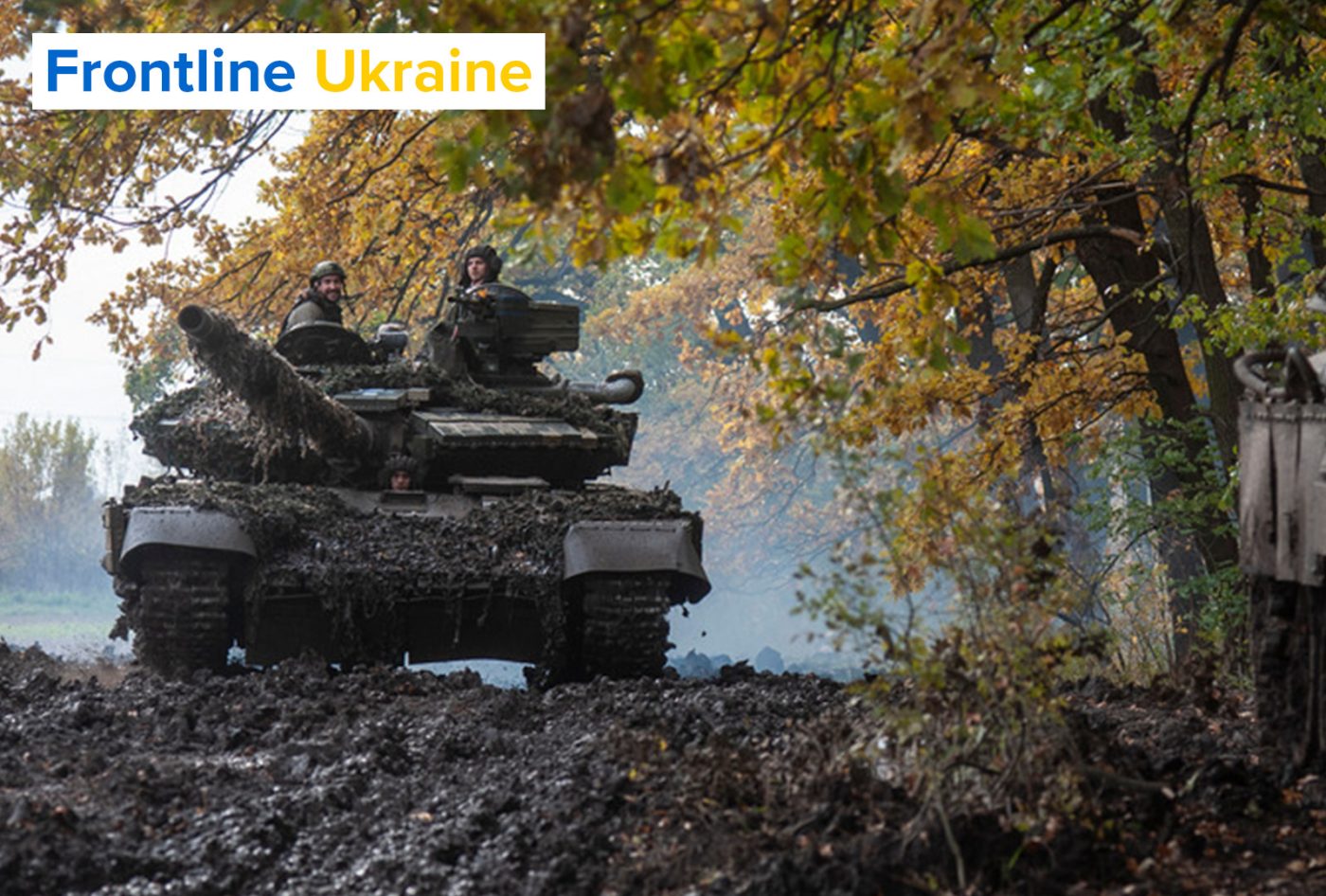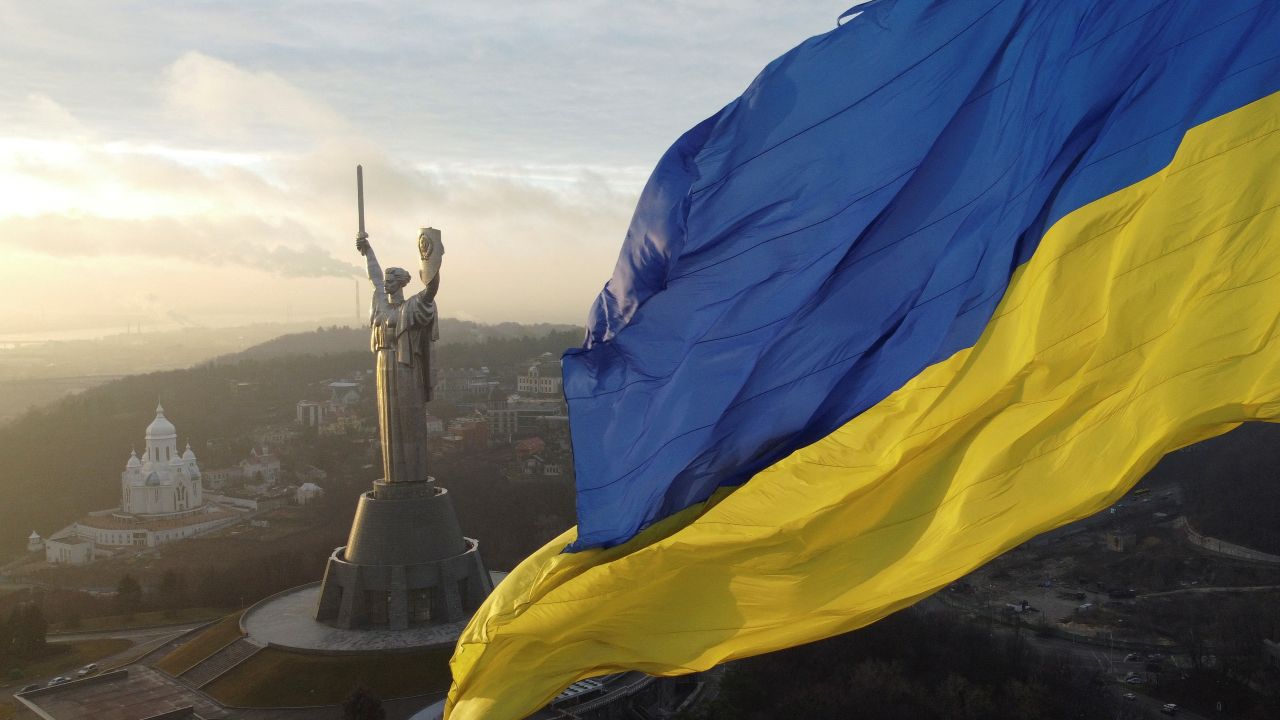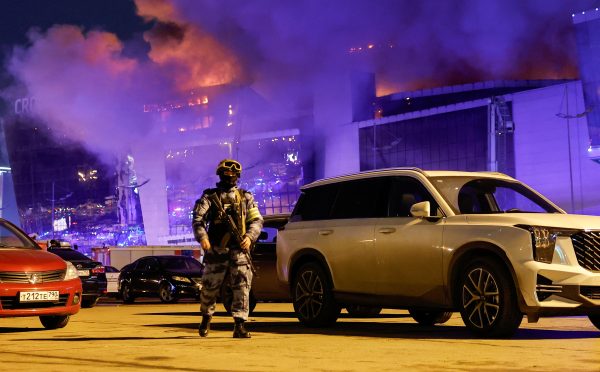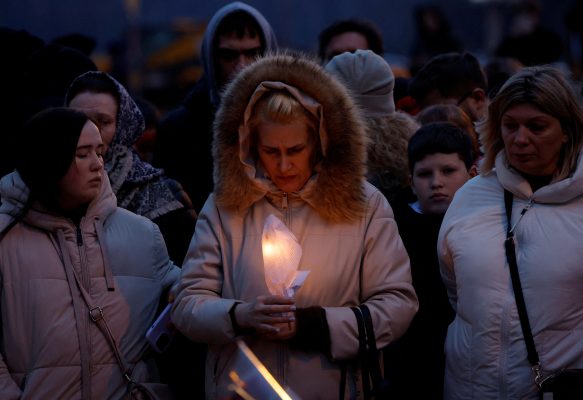Colonel Valeriy Gudz was absolutely fearless, an inspiration to his soldiers in Ukraine’s 24th Brigade. And far from stupid, unlike some other senior officers.
One commander, soldiers say, was so out of his depth that he carried an unexploded tank round into headquarters, where it detonated. Another was likewise “not the smartest”, according to his troops.
The unit was beginning to suffer and the news reached Gudz — known as “Father” to his troops — who took matters into his own hands. As former commander of the 24th Brigade, he refused to sit and watch as the unit deteriorated. Without any orders to do so, he posted himself to command his old unit.
“He arrived to get things under control. He came to save his people. He was crazy. He was fearless,” says Sergeant Myroslav Olijnyk, callsign “Skald”, who has since moved onto a special forces unit.
Gudz immediately made himself seen, seeking to assess the unit’s fighting readiness and show himself to the troops. He visited brigade positions to find out what was happening across its sector. And to raise morale.
“At that time, we were sleeping for only a few hours a day. We were ‘covering’ all the possible holes in our defense. But when we heard that Colonel Gudz is coming — a new hope was born. We started smiling again. We were shouting, ‘Father’s coming!’” Myroslav says. “I was thinking that if he takes command, we’d just launch into a counterattack. This was a truly fearless officer.”
But fearlessness has a price. After only a few days in the Donetsk region, Gudz was seriously wounded by shellfire. “I was hit on the same day,” Myroslav recounts. “I walked for five miles with a shell fragment in my knee, away from an almost surrounded village. And I felt so ashamed. For three weeks we hadn’t had a chance to take a shower, we were working all the time. I smelled like a pig. I was taken to the stabilization center where I had surgery.
“And while I was lying there, Colonel Gudz was also brought in, badly wounded. I listened to him screaming. I saw the medics trying to save him. He was choking, the sounds were terrible . . . I’m lying there, and the tears are running from my eyes. And I’m yelling at him — ‘Father, Father, get up! Commander, get up!’ And I was trying to move closer to him, but it wasn’t possible. And he died”.
The battle honors of the 24th Brigade are much like those of the 93rd Brigade (see article two of this series.) Both are battle-hardened regular army units that because of their quality have been used time and again by Ukrainian commanders wherever the fight is fiercest.
It is foolish to pretend that this has come without a cost to the psychological well-being of the soldiers. Or that seasoned regular army units have not struggled to incorporate newcomers arriving as replacements for the dead and the wounded.
Those might be border guards, or territorial defense fighters, and of course conscripts. The quality of these people, their training, and their moral values varied a great deal. Some were not the best. “Sometimes they just refused to fight, some just left. Some might refuse to obey orders,” Myroslav says. “And that’s not a problem among the ‘old’ regulars, that’s the problem of the new ones.
“There’s been a lot of losses — I mean both human loses and territorial losses — that could have been avoided if people didn’t behave like that.”
That’s why he supports law 8271, which increases the range of punishments for service personnel guilty of desertion and disobedience. This law has been extremely controversial and many oppose it. Unsurprisingly perhaps, frontline fighters take a less sympathetic approach. “Russians can’t disobey. They are killed if they disobey — I know that because I’m listening to intercepted transmissions from the other side,” Myroslav says.
In December, Ukraine’s parliament passed the law, which considerably raised punishments for serious infractions of military discipline. Senior officers said they were limited in some circumstances to deductions of 10% of a soldier’s pay for serious breaches; opponents argued in return that the new rules would bar soldiers from making commonsense decisions on the battlefield.
Natalya Feshchyk is a lawyer, a member of the board of the Yuridichna Sotnia (The Legal Hundred) NGO, and Deputy Chairman of the Military Law Committee in the National Association of Ukrainian Lawyers. She has defended numerous soldiers accused of a wide range of charges ever since 2014.
She says there are not many cases of desertion nowadays, but there are many where troops are accused of disobedience (she doesn’t know the overall numbers and thinks that information is probably classified.)
The lawyer says there are two types of disobedience in her experience. The first concerns those with health problems who have a limited ability to serve, but who are nonetheless thrown onto the front lines. The second category is what she terms “D’Artagnans”, those who complain that they “didn’t get tanks” or something similar to accomplish a mission. She says the latter should be always discussed between lawyers and military representatives to understand the detail of each case.
The truth is that Ukraine is building a huge army based on civilian volunteers and conscripts, at speed and during a high-intensity, high-casualty conflict. Many have little or no previous military experience and are then required to do things that are, by their very nature, potentially lethal. Problems are inevitable.
And yet so far, the Ukrainian armed forces have grown and have not buckled under the weight of a relentless Russian assault. There is a sense, underlying its performance, of a nation that understands that its freedom and even existence are under threat, and must be defended.
Lera Burlakova is a Democracy Fellow at the Center for European Policy Analysis (CEPA.) She is a journalist and former soldier from Ukraine. She served in combat from 2014-2017 after joining the Ukrainian army following the Russian invasion of Crimea. Her war diary “Life P.S.” received the UN Women in Arts award in 2021.
Europe’s Edge is CEPA’s online journal covering critical topics on the foreign policy docket across Europe and North America. All opinions are those of the author and do not necessarily represent the position or views of the institutions they represent or the Center for European Policy Analysis.





